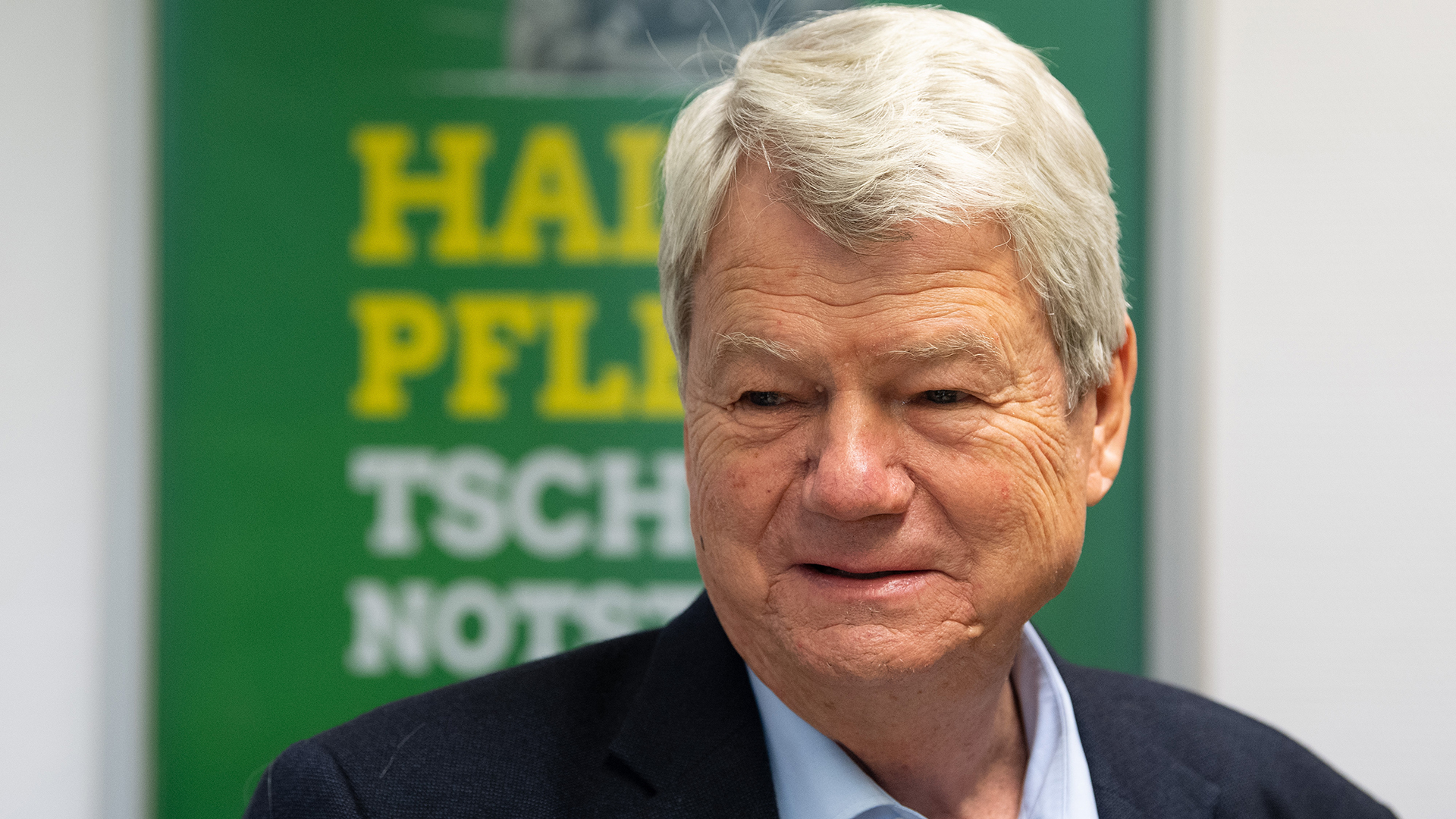For almost four months, a special investigator dealt with the connections between the bankrupt Wirecard and secret services and was barely able to find anything. This should also be due to the lack of willingness to provide information on the part of the federal government.
By Marilina Görz y Moratalla, SWR, and Jan-Philipp Hein The counter-espionage of the Federal Office for the Protection of the Constitution is said to have so far found no evidence that the fugitive former Wirecard board member Jan Marsalek was tied to Russian intelligence services. However, the search continues. That writes the special investigator of the Wirecard investigation committee, the former Berlin Justice Senator Wolfgang Wieland (Greens), in his investigation report, the SWR is present. At the end of November, the committee of inquiry commissioned Wieland to deal specifically with the contacts of the former DAX group with secret services. In his report, Wieland also mentions that Marsalek’s colleague on the board, Susanne Steidl, reported to the Munich public prosecutor that Marsalek had “requested and received a complete annual data set of Wirecard business partners to be forwarded to the BND”. The Wieland paper does not reveal what kind of data it was about. But: The BND excludes “verifiably” from ever having received it. For Wieland, therefore, the question arises who received it instead.
 The special investigator Wieland does not feel adequately informed by the federal government. Image: picture alliance / dpa / dpa-Zentral A spokesman for Steidl says this SWR– Inquiry: “The BND was a customer like many others.” Therefore, the process from summer 2019 was not unusual. It was also anonymous data, such as can be bought from other service providers. To this day, Steidl does not know what Marsalek did with the data.
The special investigator Wieland does not feel adequately informed by the federal government. Image: picture alliance / dpa / dpa-Zentral A spokesman for Steidl says this SWR– Inquiry: “The BND was a customer like many others.” Therefore, the process from summer 2019 was not unusual. It was also anonymous data, such as can be bought from other service providers. To this day, Steidl does not know what Marsalek did with the data.
“Ignorance of the intelligence services”
Shortly after the collapse of the then DAX group in the early summer of last year – this is also shown by documents supporting the SWR are available – the Federal Chancellery and various security authorities began investigating Wirecard and the fleeting top manager Marsalek after inquiries from the press and parliament. Shortly after his disappearance, he was said to have had close relationships with Russian secret services. But neither the BND nor the Office for the Protection of the Constitution want Marsalek and Wirecard to be on their radar. “As a result, the ignorance of the intelligence services was confirmed by June 2020,” writes Wieland. The fact that Marsalek is repeatedly associated with Russia is due to the fact that he pursued a large number of projects and businesses there and traveled there very often. In 2017 and 2018 he also tried to start a project in Libya together with a professor of Arabic studies from Moscow, a high-ranking officer in the Austrian Armed Forces and a German refugee expert. In addition, his escape with a private jet via Belarusian Minsk is said to have finally led him to Russia itself. The secret service expert and historian Wolfgang Krieger from the Philipps University in Marburg says: “Jan Marsalek does not get protection from Russia for free. It is very likely that he received protection for financial espionage.”
Wirecard worked together with the BKA
Several units of the Federal Criminal Police Office (BKA) worked together with the later scandal group, whose bankruptcy has grown into one of the largest criminal cases in German history. From 2013, online criminals were to be convicted with the help of the Group’s own Wirecard bank. The bank also made credit cards available for this purpose. Later, the BKA turned to the group “in order to obtain information about the whereabouts of known or unknown perpetrators in real time when developing new search approaches with the help of data from credit cards,” Wieland writes in his report. For Wieland, the fact that the report leaves many questions unanswered in spite of everything is also due to the lack of cooperation and willingness to provide information on the part of the federal government and the Bavarian state government. Information is blocked to this day due to ongoing criminal investigations. The Bavarian Ministry of Justice did not even send confirmations of receipt in response to inquiries. The SPD MP Jens Zimmermann from the Wirecard committee also criticizes this: “The fact that the Bavarian Ministry of Justice did not respond to the request for support from the investigative committee’s special investigator casts a bad but telling picture of the lack of willingness to provide information in Bavaria.”
Ex-top secret service agent in front of the committee
Wieland will present an expanded version of his report to the committee of inquiry on Thursday morning. Immediately afterwards, two former intelligence coordinators from the Chancellery have to testify before the committee. Klaus-Dieter Fritsche, who was responsible for the secret services at the government headquarters from 2014 to 2018, signed a consulting contract with Wirecard in 2019. Until 2020, Fritsche lobbied for the group at its old place of work. In 2019, a department head of the Chancellery met a Wirecard board member. According to Fritsche, Bernd Schmidbauer, who worked under Helmut Kohl in the Chancellery from 1991 to 1998, must testify. Schmidbauer admitted in February that he had met Marsalek about two years ago in his Munich property. In addition, Schmidbauer was in contact for years with one of Marsalek’s escape helpers, a former chief constitutional protection officer from Austria. The FDP chairman Florian Toncar has high hopes for the interrogations of the two ex-top secret service agents. The whole complex around Wirecard and the intelligence services has been “underexposed” so far, says Toncar. It is “worrying” that foreign intelligence services apparently got involved with Wirecard. Toncar calls the fact that the company was used as a “money laundering machine” for the interests of the Russian government or to pay mercenaries in Libya or Syria or to circumvent sanctions, “says Toncar,” hypotheses that the facts point to. ” Addition from April 14th, 2021: According to its own account, the Bavarian Ministry of Justice “transmitted” the information requested by the investigative officer Wieland. These were received by him today at noon. Confirmations of receipt, according to a spokeswoman, “are generally not sent by the Bavarian Ministry of Justice”. Therefore, the allegations made against the Bavarian government are incorrect.





























































You must log in to post a comment.